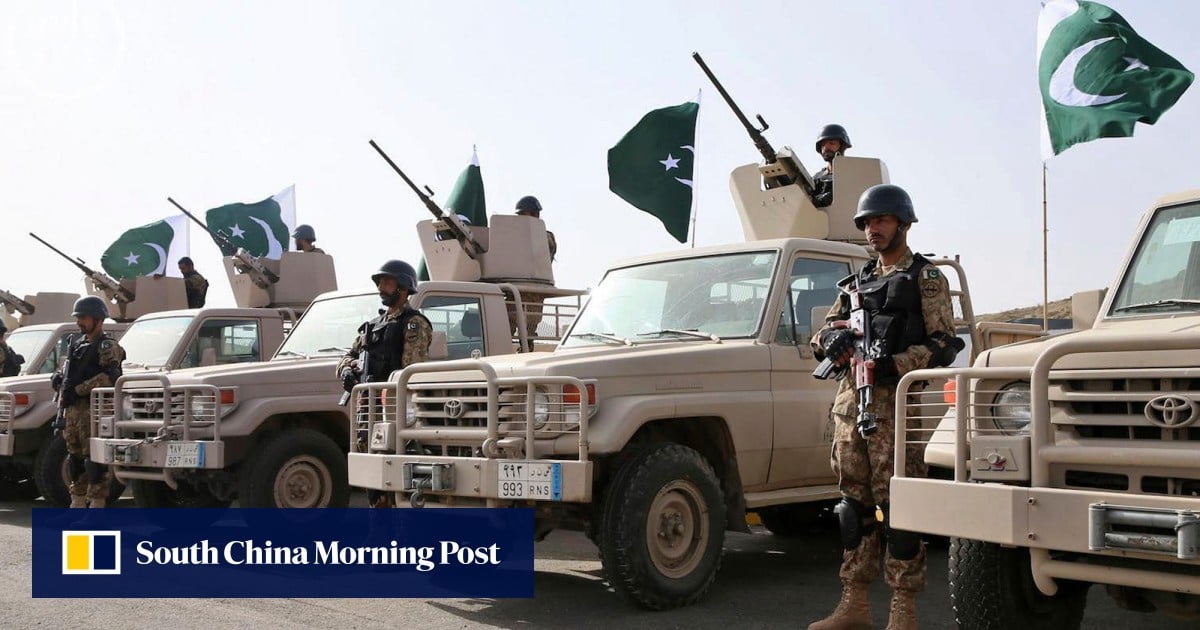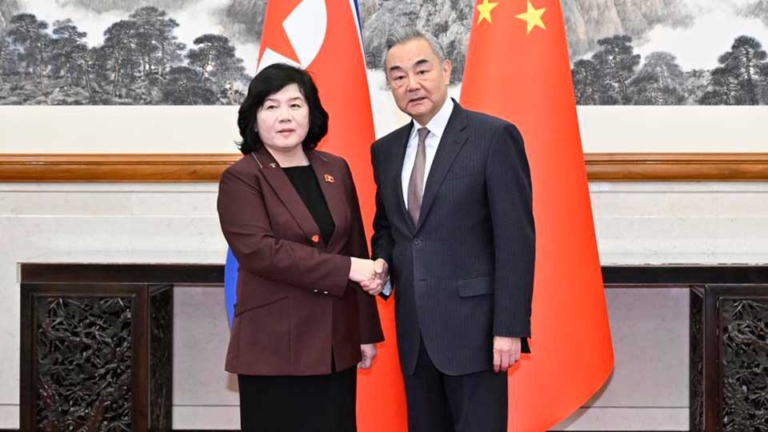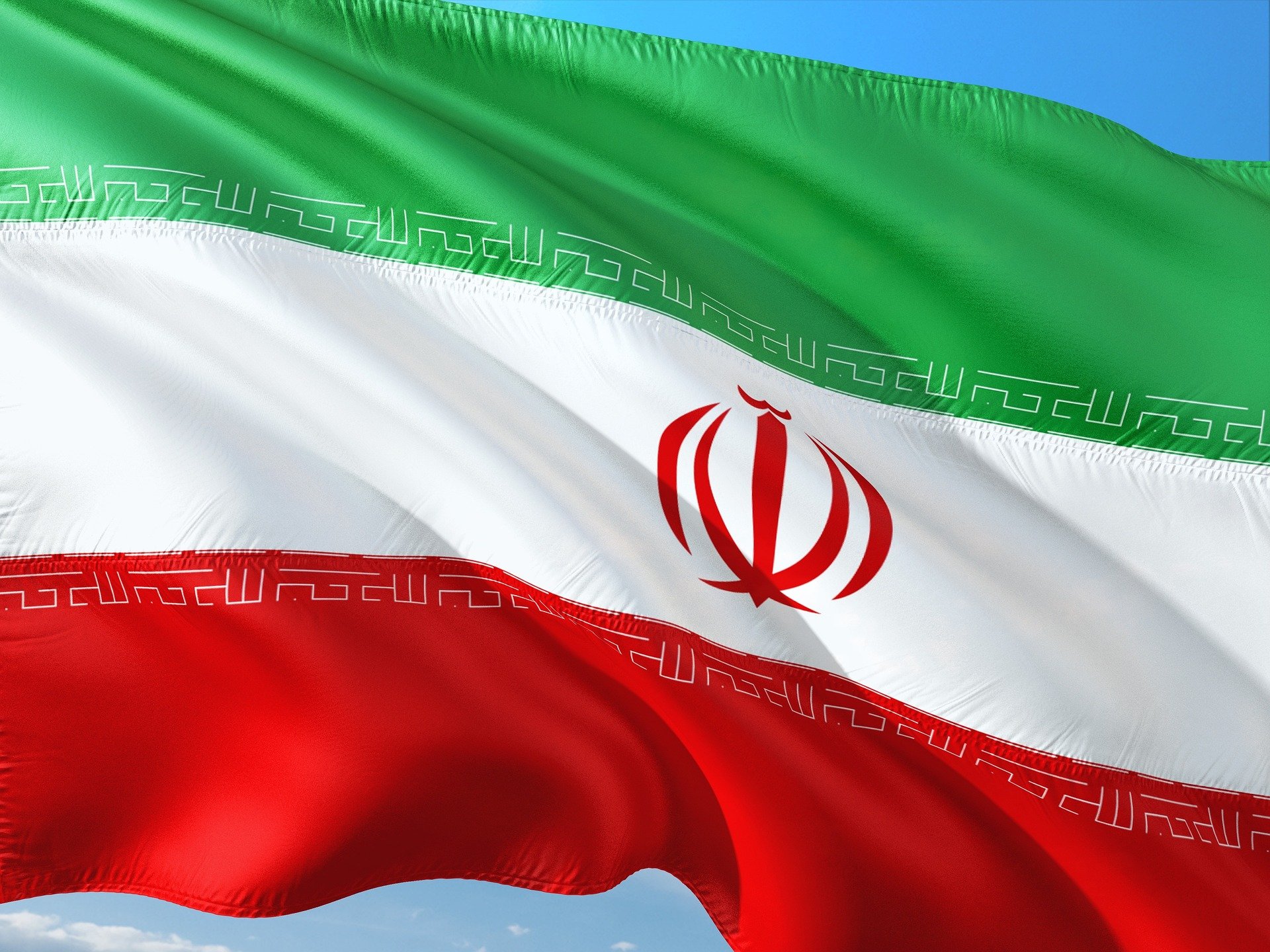Saudi Arabia's recent mutual defence pact with nuclear-armed Pakistan is widely seen as a strategic move by the kingdom as it seeks alternatives to its traditional security guarantees from the United States.
However, it also poses a dilemma for China, which has strong relations with both countries, including a long-standing collaboration with Riyadh on its civilian nuclear programme.
Analysts suggested Beijing would not wish this nuclear partnership to develop further to avoid provoking the US or giving the impression it was encouraging nuclear proliferation.
Advertisement Advertisement
Advertisement Advertisement
Do you have questions about the biggest topics and trends from around the world? Get the answers with SCMP Knowledge, our new platform of curated content with explainers, FAQs, analyses and infographics brought to you by our award-winning team.
When asked whether the pact would place Saudi Arabia under Pakistan's nuclear umbrella, a senior Saudi official replied that it would "encompass all military means".
The deal comes amid growing Saudi unease over American security guarantees, particularly following Israel's recent missile strikes targeting the Hamas leadership in Qatar, another key US ally in the Middle East.
Israeli Prime Minister Benjamin Netanyahu has since apologised to Qatar for the attack, but Sun Degang, director of the Centre for Middle Eastern Studies at Fudan University, said the widespread belief that Israel had a "nuclear monopoly" in the region was fuelling concern.
Advertisement Advertisement
Advertisement Advertisement
Sun added that "as America shows reluctance to protect its ally [Qatar], it directly triggered Riyadh's unease".
"Whether Saudi Arabia develops nuclear weapons will largely depend on Iran, which has long sought to become a nuclear-capable state," Sun said.
However, John Calabrese, a non-resident senior fellow at the Middle East Institute in Washington, said given this growing Saudi unease, China could give the kingdom an opening to advance its nuclear development.
"China's historical collaboration with Saudi Arabia on civilian nuclear projects and uranium exploration provides a potential avenue for deeper engagement.
Advertisement Advertisement
Advertisement Advertisement
"Beijing could expand support for civilian nuclear infrastructure, with possible dual-use implications," he said.
In 2020, Saudi Arabia denied a Wall Street Journal report that China was involved in a project in the kingdom to produce yellowcake uranium - a concentrated form of the ore that can be processed into reactor fuel.
However, Riyadh did say it had agreed to work with China on "certain areas" of uranium exploration, and three years later it emerged that Saudi Arabia was considering a Chinese bid to build a nuclear power plant.
The two sides have also signed a deal on broader cooperation on uranium and thorium resources, and set up joint projects to extract uranium from seawater in 2017.
Advertisement Advertisement
Advertisement Advertisement
In April this year, the two countries signed another memorandum of understanding on nuclear energy security.
Previous Saudi missile purchases from China have triggered US scrutiny about whether they were nuclear-capable, according to media reports.
Any further nuclear cooperation between the two countries would also be likely to draw scrutiny from Washington.
But Sun said he doubted that Beijing would want to move beyond civilian projects, citing its commitment to nuclear non-proliferation and concern about provoking the United States.
"Beijing is also not seeking a sphere of influence in the Middle East and remains restrained in defence cooperation, since moving too far would touch on America's core interests," he said.
Advertisement Advertisement
Advertisement Advertisement
The US has made periodic attempts to deepen its own nuclear collaboration with the Saudis, but these have largely come to nothing.
During Donald Trump's first term as president, opposition from Congress prevented the White House from making any progress in this area.
A US-Saudi defence treaty proposed by Joe Biden's administration in return for Saudi Arabia and Israel normalising relations was also reported to include further cooperation on civilian nuclear projects, but this proposal stalled following the outbreak of the Gaza war.
Sun's assessment was echoed by Rabia Akhtar, a visiting fellow at the Project on Managing the Atom at Harvard Kennedy School, who described Beijing as a "hedge partner" for Saudi Arabia - "present enough to diversify Saudi options, cautious enough to avoid a public breach with the US on nuclear issues".
Advertisement Advertisement
Advertisement Advertisement
She added: "China has little incentive to be tagged as a proliferator; it has more to gain by being the reliable civil partner that grows influence without triggering sanctions."
Beijing's ambition to expand its influence in the Middle East is clear, but it has tried to distinguish itself from Washington by acting as a peace broker - most visibly when it mediated a deal to restore diplomatic relations between Saudi Arabia and Iran in 2023.
In March, when Chinese Foreign Minister Wang Yi met his Iranian and Russian counterparts to discuss the international deal on Iran's nuclear programme, he stressed China's commitment to non-proliferation while condemning Western sanctions.
"China's approach to entering the Middle East security landscape is by presenting itself as a stabiliser rather than a source of tension, which is why, I believe, Beijing will not play a role in accelerating the regional nuclear arms race," Wen Shaobiao, a Middle East specialist at Shanghai International Studies University, added.
Advertisement Advertisement
Advertisement Advertisement
China and Pakistan's close military relationship has sparked speculation that the deal could pave the way for Beijing and Riyadh to cooperate on nuclear weapons, but this is unlikely, according to Jesse Marks, executive director of Rihla Research & Advisory, a Washington-based consultancy.
"If a Beijing-Pakistan mechanism became the cornerstone of Saudi nuclearisation, Beijing may face opposition from its own SCO [Shanghai Cooperation Organisation] members, including India and Iran," Marks said.
"This would likely draw [a] mass international backlash and criticism, undermining Beijing's leadership narrative around the Global Security Initiative and its wider global governance ambitions."
A vague Pakistan-Saudi defence deal was not solid evidence that Riyadh was moving rapidly toward nuclear capability, said Akhtar. "Riyadh is hedging, not sprinting," she said.
Advertisement Advertisement
Advertisement Advertisement
"Doctrines can evolve if Iran's programme shifts decisively," she added.
In 2018, Crown Prince Mohammed bin Salman, the country's de facto ruler, said: "Saudi Arabia does not want to acquire any nuclear bomb, but without a doubt, if Iran develops a nuclear bomb, we will follow suit as soon as possible."
This development could directly threaten China's role as a peace broker between Riyadh and Tehran, and Beijing should "draw a red line on its depth of nuclear cooperation with Saudi Arabia", Marks said.
"If Riyadh makes a concerted push for a nuclear weapons programme ... Beijing will have to set clear boundaries over how far down the path of the development of a Saudi bomb they will support.
Advertisement Advertisement
Advertisement Advertisement
"This is unlikely to align with China's rhetorical interests and could not negatively impact its own image if perceived as an enabler of nuclearisation. Put plainly, Beijing will not want to be criticised as helping spark a regional nuclear arms race."
He added: "The key question is where China will draw a red line."
Wen added that China would not want to see a Saudi-Iranian nuclear arms race, adding that in such an event "China will still hope to implement the nuclear non-proliferation mechanism in the Middle East through consultation".
This article originally appeared in the South China Morning Post (SCMP), the most authoritative voice reporting on China and Asia for more than a century. For more SCMP stories, please explore the SCMP app or visit the SCMP's Facebook and Twitter pages. Copyright © 2025 South China Morning Post Publishers Ltd. All rights reserved.
Copyright (c) 2025. South China Morning Post Publishers Ltd. All rights reserved.
[SRC] https://www.yahoo.com/news/articles/saudi-pakistan-defence-pact-poses-093000489.html
 Visit the website
Visit the website






